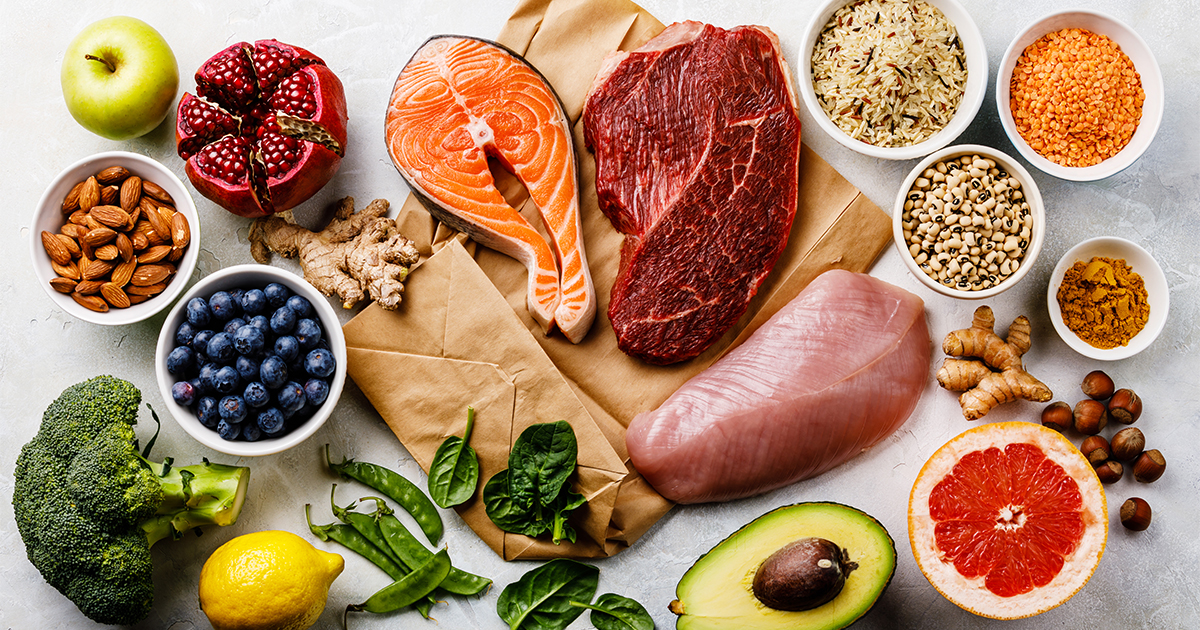
How good nutrition can help prevent cancer
Half the people living in the United States will be diagnosed with cancer.
With odds like that, it’s important to know what you can do to reduce your cancer risk and some key first steps to take if you get diagnosed.
“All the cells in our body need good nutrition. It is important to follow a healthy eating pattern that includes foods with the nutrients that can help us stay healthy and fight disease,” said Katrina Sommer, advanced practice dietitian with OSF HealthCare.
Obesity and overall health
You can significantly reduce your cancer risk with three decisions: Don’t smoke, stay physically active and practice good nutrition, including foods that prevent cancer.
Obesity is a considerable risk factor for cancer, so maintaining a healthy weight is essential to staying healthy. If you’re unsure what a healthy weight is, use this calculator to learn your body mass index (BMI). If you are concerned about your BMI or want help managing your weight, you can talk with your primary care provider.
“Excess body weight can increase your risk for several health conditions, including 13 types of cancer. Even losing a small amount of the excess weight can help reduce your risk of developing cancer,” Katrina said.
Focus on natural food and drink
Eating and drinking natural is like using super foods to fuel our physical activity. These super foods are cancer preventative foods and help us stay heart healthy, prevent chronic conditions and fortify against other diseases.
“What you eat and drink matters. You need a certain amount of energy, vitamins, minerals and hydration each day just for normal function,” Katrina said. “When your body does not get the proper nutrients, it is not fully armed to help protect and heal from disease. Eat a balanced diet with plenty of plant foods, fiber and adequate protein to help promote good health.
The heavy lifting to keep us healthy is done by phytochemicals, antioxidants and Omega-3 fatty acids.
“Phytochemicals are found in plants and help prevent cancer-causing agents from forming,” Katrina said. “Antioxidants, which help maintain your DNA and keep cancer cells in check, are abundant in citrus fruits, like oranges and grapefruits, and vegetables. Omega-3 fatty acids – common in seafood, beans and nuts – also help reduce tumor growth.
“While you can take vitamins and other supplements, eating natural, whole foods filled with vitamins and minerals will give you the best health benefit.”
Make good food, drink choices
Katrina offers some simple tips for a cancer prevention diet:
- Try to avoid highly processed foods. These foods have extra fat and sugar, leading to weight gain. Eat foods in their whole form as much as possible to help get the best nutrition from them.
- Eat fruits, vegetables and other plant foods high in fiber. Fill at least half your plate with vegetables each meal. It doesn’t have to be fresh. Canned and frozen vegetables contain good nutrients; choose those without added salt, sauces or sugar.
- Eat meat wisely. Limit eating processed meats that have been smoked, salted or cured. Eat red meat such as beef, pork and lamb in moderation – three times a week or about 18 ounces per week. Eat a meatless meal by swapping the meat for plant-based protein such as beans.
- Drink water or green tea instead of sugar-sweetened drinks. Water is best! If you need flavor in your water, try adding limes, mint and cucumber slices or strawberries and basil.
Take action to prevent cancer
Katrina emphasizes eating all colors of vegetables, such as cabbage, cauliflower, Brussels sprouts, carrots, fresh spinach leaves, sweet potatoes and tomatoes. Legumes, nuts, seeds and whole grains such as wild rice are also staples of a healthy, disease-resistance diet.
Snacking on small amounts of 70% dark chocolate or greater may also be beneficial as it contains flavonoids, which act as antioxidants.
“Eating all colors of vegetables provides our body with a wide variety of phytochemicals, which is really good for us,” Katrina said. “Cruciferous vegetables, such as broccoli and cauliflower, have been studied for their cancer-protective benefits. Try roasting these vegetables for great flavor and nutrition.”
Go for the protein
Lean protein is essential for health and wellness.
“Eat some protein with each meal and snack throughout the day. This is how your body will use it best,” Katrina said. “Some protein examples include chicken, eggs, cottage cheese and nut butters.”
Preventing cancer is a lifestyle-wide commitment and requires diligence. But you don’t need to turn yourself into a pretzel.